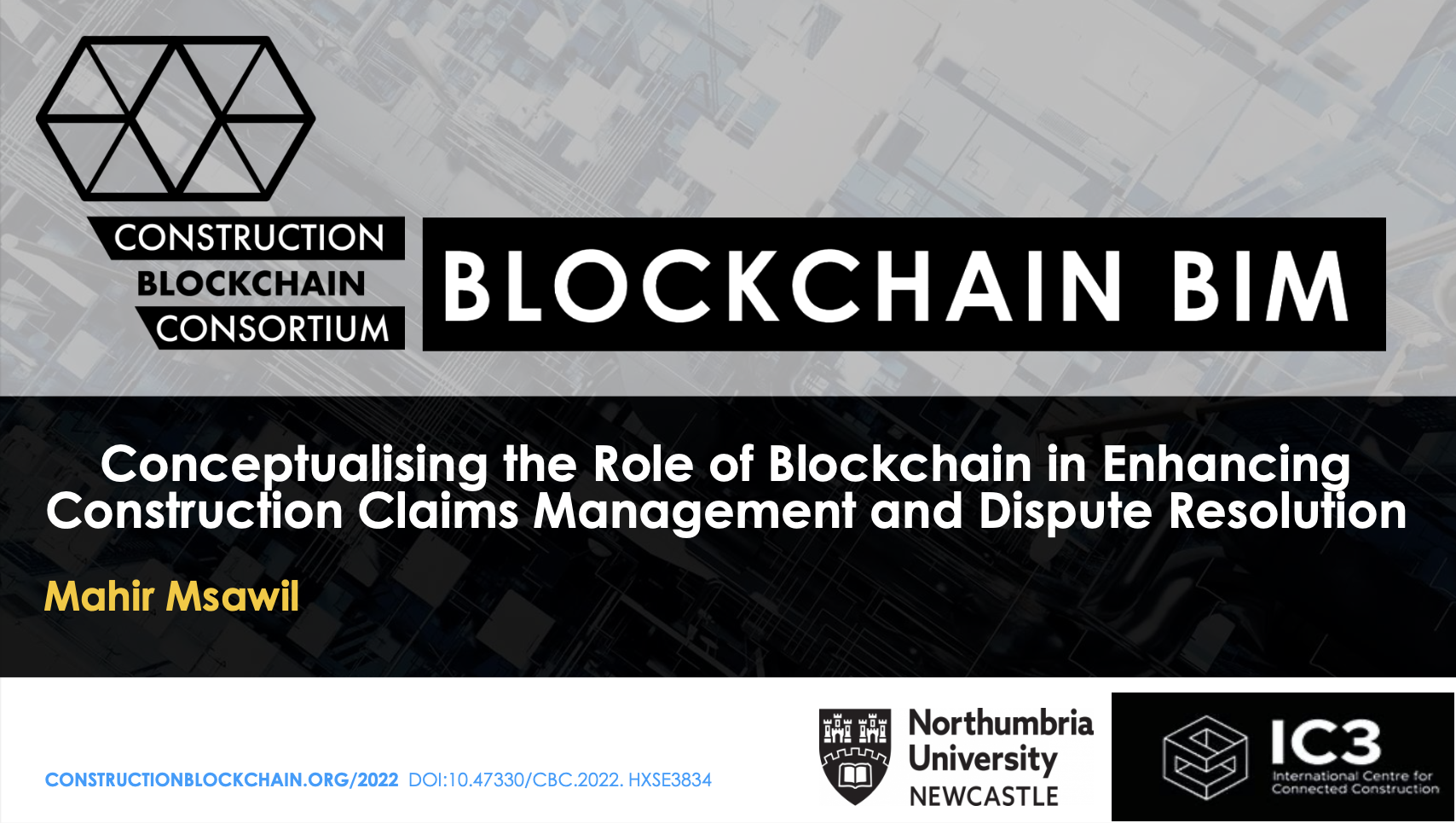Conceptualising the Role of Blockchain in Enhancing Construction Claims Management
Abstract
Contractual claims for time extensions and additional costs result from a variety of events occurring during the course of construction projects. However, claims management is reported to be ineffective and wasteful for contracting parties and their respective agents. This deficiency tends to result in unsettled claims that evolve into legal disputes. Statistically, the 2022 Arcadis’ industry report demonstrates an increase in disputes in many global jurisdictions due to unsettled claims in the construction industry. The findings in this report underpin the widely held belief that claims management in construction contracts needs to be enhanced. Yet, efficient and effective construction claims management has remained elusive from the perspectives of contracting parties. This elusiveness is believed to stem from a wide array of challenges. The challenges can be seen through (i) process, (ii) content, and (iii) behaviour lenses. Process-related challenges may stem from: (i-a) missing eligible claim events, (i-b) procedural invisibility, and (i-c) belated decisions/determination. Whereas content-related challenges include: (ii-a) misapplication of contractual clauses, (ii-b) incompleteness of relevant records, and (ii-c) distortion of records/information. In terms of challenges triggered by behaviour, (iii-a) inadvertent and intentional inaction towards contractual administrative activities and (iii-b) changing team members along the project are frequently reported. To enhance construction claims management, an optimal solution that addresses the relevant challenges needs to: (1) enhance visibility of the process, (2) streamline the contents of construction claims, (3) meet the contractual needs of contracting parties, and (4) moderate the behaviour of involved agents. Encapsulating these aspects in a single solution may now be possible with the advent of blockchain technology and its associated smart contracts. Blockchain-based solutions have been proposed in the construction project management (CPM) research domain with the aim of tackling typical challenges encountered in construction projects. Furthermore, the “iContract” line of research is a valuable attempt that contributes to advancing the realisation of automated construction contract administration. Yet, there remains a paucity of work that conceptualises the potential role that blockchain can play in tackling the particular challenges facing construction claims management. To assess and conceptualise the applicability of blockchain to the desired need for enhanced construction claims management, the work presented herein derives initial evidence from existing research efforts that align with the aforementioned three lenses. To illustrate the conceptualisation, the occurrence of unforeseeable site conditions is taken as an exemplified claim event. The contractual claims management process and clause associated with this claim event are extracted from the 2017 FIDIC Red Book. The conceptualisation presented sheds light on how blockchain technology can enhance construction claims management by overcoming reported challenges associated with this contractual process. Further, emerging challenges associated with the research work in progress are presented. The authors are currently advancing the presented conceptualisation to a full framework with the aim of developing a proof-of-concept simulation that can contribute to reducing unsettled claims and their respective evolved disputes.

